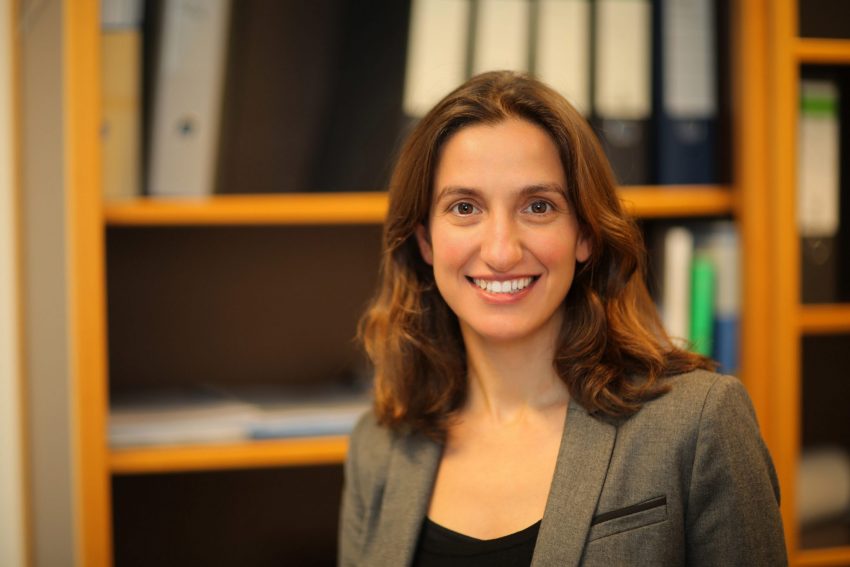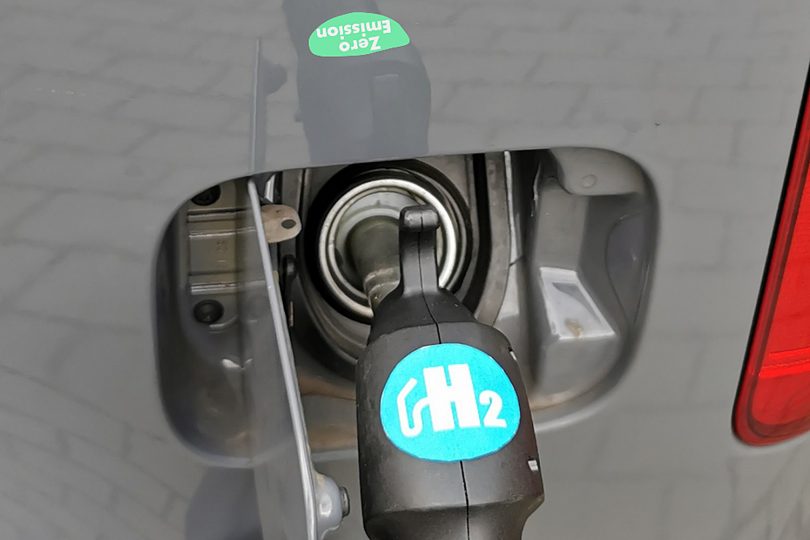Global Thinking, local acting An interview with Professor Mehtap Özaslan on the Electrochemistry 2024 conference
More than 500 researchers and experts in the field of electrochemistry are expected to attend the Electrochemistry Conference at TU Braunschweig on 16 September. Under the motto ‘Global Thinking Local Acting’, they will discuss the latest findings and trends in the field of electrochemistry.
Electrochemistry 2024 will soon take place at TU Braunschweig. Can you briefly explain what is being researched in the field of electrochemistry?
Green hydrogen, lithium-ion batteries, fuel cells, very thin metals coatings and the reduction of CO2 from the atmosphere are all related to electrochemistry. It is therefore impossible to imagine society without electrochemistry. It is with us every day. Electrochemistry is a key discipline and offers many solutions to the challenges of a sustainable and CO2-neutral society. From fundamental research to applications such as batteries, fuel cells, electrolysers, electrosynthesis of organic compounds, sensor technology and electroplating, all electrochemical processes take place at the interface between an ion conducting phase and another conducting phase.
The conference is therefore an ideal meeting place for science and industry. Last minute registrations are still possible.
The conference will bring together international experts to present the latest research results and trends. What are the latest developments in electrochemistry?
All areas of electrochemistry are covered at the conference, which is held every two years at a different location in Germany. Important topics include batteries, electrolysis and fuel cells. But CO2 capture and utilisation, electrochemical N2 reduction to ammonia as an alternative to the energy-intensive Haber-Bosch process, and organic electrosynthesis are also very popular. We are therefore all the more pleased that we have been able to put together a varied programme for the conference with many international and renowned speakers.
The theme of this year’s conference is ‘Global Thinking Local Acting’. What is the significance of electrochemical research here at TU Braunschweig and what role does our local research ecosystem play?
The challenges in this world are too big to solve alone. That’s why it’s important to think globally. For example, as ‘Technical Electrocatalysis Laboratory’ , we have established the ‘Japanese-German Green Hydrogen Material Laboratory’ in Japan with the University of Yamanashi (Japan). The joint DFG-NSF workshop EChem with American colleagues also contributes to networking in an international context. It is therefore particularly important to enter into strategic partnerships. Science itself can connect us globally.
At the same time, we can help shape our environment locally. From our research, we are heavily involved in the activities of the Hydrogen Terminal Braunschweig and the Energy Research Centre of Lower Saxony (EFZN), contributing to a sustainable society. Even after the planned transfer of the ‘Technical Electrocatalysis Laboratory’ to the University of Hamburg, we are still closely networked with Braunschweig and form a bridge between the two northern German states in the field of green hydrogen.
You are also organising the ‘EChem’ workshop with participants from the USA and Germany, which is taking place as a satellite programme before the conference. Can you briefly explain what this particular project is all about?
Prior to the conference, about 30 American and German researchers, who were jointly selected by the National Science Foundation (NSF) and the German Research Foundation (DFG) in a highly competitive process about three years ago, will meet in person for the first time in Braunschweig. Participants will have the opportunity to present, discuss and network with each other on scientific highlights in the field of electrosynthesis.This workshop marks the conclusion of a successful NSF-DFG funding programme. It is also a starting point for future transatlantic collaboration in this field: Together with our colleagues Matthias Blatzill (University of South Florida) and Arkady Krasheninnikov (Helmholtz-Zentrum Dresden-Rossendorf), the ‘Technical Electrocatalysis Laboratory’ is researching novel two-dimensional PtTe chalcogenides for electrochemical hydrogen evolution in acidic environments, which have the potential to outperform conventional platinum nanoparticle catalysts.
After the one-day workshop, the scientific exchange will continue at the conference. The latest findings from the workshop will then be shared with the approximately 500 participants at ELECTROCHEMISTRY 2024.
In conclusion: What do you wish for the event and the conference participants?
Lively exchange and discussion. Lots of fun and great diversity and creativity. And of course we invite the international and national participants to follow our motto: Electrochemistry – Global Thinking Local Acting.
Thank you very much.


